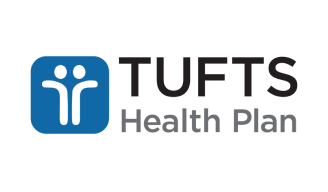Northbrook, Illinois, United States
Eating Recovery Center Northbrook
Claimed
Claimed
Recovery.com has connected directly with this treatment provider to validate the information in their profile.
Joint Commission Accredited
The Joint Commission accreditation is a voluntary, objective process that evaluates and accredits healthcare organizations (like treatment centers) based on performance standards designed to improve quality and safety for patients. To be accredited means the treatment center has been found to meet the Commission's standards for quality and safety in patient care.
Provider's Policy
Our patient access team can help you address financial challenges and work with you to get you the maximum coverage offered by your plan.
Estimated Cash Pay Rate
The cost listed here (Call for Rates) is an estimate of the cash pay price. Center pricing can vary based on program and length of stay. Contact the center for more information. Recovery.com strives for price transparency so you can make an informed decision.
About Eating Recovery Center Northbrook
Located in the northern suburbs of Chicago, The Eating Recovery Center in Northbrook offers specialized treatment for children and adolescents ages 10-17 with eating disorders and co-occurring mental health issues. Their services include intensive outpatient (IOP), partial hospitalization (PHP), Residential, and virtual programs. The Eating Recovery Center uses an evidence-based approach to provide each patient with the necessary support to achieve long-term recovery. Their treatment team includes psychiatrists, registered dietitians, family clinicians, nursing support, and educational specialists who are dedicated to helping clients heal in a safe and supportive environment.
Comprehensive Care Plan
The Eating Recovery Center uses a holistic and personalized approach to treat eating disorders, combining medical, psychological, and nutritional support. The center provides treatment for adults, adolescents, and children struggling with anorexia nervosa, ARFID, bulimia nervosa, diabulimia, compulsive overeating, orthorexia, and other specified eating disorders. Their team is trained on evidence-based therapies, providing options for even the most complex cases. Their nurses are available 24/7 and have experience refeeding patients and using supplemental tube feeding. They share research with Northwestern University Medical School and Rush University Medical School.
Tailored Therapy Paths
The clinicians use exposure and response prevention (ERP), cognitive processing therapy (CPT), acceptance and commitment therapy (ACT), dialectical behavior therapy (DBT), cognitive behavioral therapy (CBT), emotion-focused family therapy (EFFT), and family-based treatment-informed care (FBT) to help clients build resilience, navigate stress, and create lasting connections with others. Additionally, they offer group therapy, family therapy, and nutritional counseling to strengthen each client's recovery.
Continuum of Care in a Modern Setting
The Eating Recovery Center in Northbrook offers a modern, nurturing environment with large trees and nature-inspired decor. They offer individual and group excursions to restaurants, nail salons, bowling, parks, and shopping.
They also have access to nearby apartments short-term for those traveling out of state and in need of accommodations. The aftercare program provides comprehensive care for alumni to sustain their recovery, including support groups for alumni and family members, reunion events, and resources for further care.
Read More

Insurance Accepted
Provider's Policy:Our patient access team can help you address financial challenges and work with you to get you the maximum coverage offered by your plan.

Center Overview
Estimated Cash Pay Rate
Adolescents
Teens receive the treatment they need for mental health disorders and addiction, with the added support of educational and vocational services.
Children
Treatment for children incorporates the psychiatric care they need and education, often led by on-site teachers to keep children on track with school.

Treatment Focus
You can get treatment for eating disorders at this center, helping you navigate symptoms, build coping tools, and restore your physical health under expert care.

Care Options






Treatment
Specializations
Adolescents
Teens receive the treatment they need for mental health disorders and addiction, with the added support of educational and vocational services.
Children
Treatment for children incorporates the psychiatric care they need and education, often led by on-site teachers to keep children on track with school.
Eating Disorders
An eating disorder is a long-term pattern of unhealthy behavior relating to food. Most people with eating disorders have a distorted self-image.
Approaches
Evidence-Based
A combination of scientifically rooted therapies and treatments make up evidence-based care, defined by their measured and proven results.
Experiential
Expressive tools and therapies help patients process past situations, learn more about themselves, and find healing through action.
Family Involvement
Providers involve family in the treatment of their loved one through family therapy, visits, or both–because addiction is a family disease.
Individual Treatment
Individual care meets the needs of each patient, using personalized treatment to provide them the most relevant care and greatest chance of success.
Personalized Treatment
The specific needs, histories, and conditions of individual patients receive personalized, highly relevant care throughout their recovery journey.
Therapies
1-on-1 Counseling
Patient and therapist meet 1-on-1 to work through difficult emotions and behavioral challenges in a personal, private setting.
Family Therapy
Family therapy addresses group dynamics within a family system, with a focus on improving communication and interrupting unhealthy relationship patterns.
Nutrition Counseling
Nutritious food helps patients heal from within, setting them up for mental and bodily wellness as they learn about healthy eating.
Acceptance and Commitment Therapy (ACT)
This cognitive behavioral therapy teaches patients to accept challenging feelings and make the appropriate changes to reach personal goals.
Conditions We Treat
Eating Disorders
An eating disorder is a long-term pattern of unhealthy behavior relating to food. Most people with eating disorders have a distorted self-image.
Substances We Treat
Co-Occurring Disorders
A person with multiple mental health diagnoses, such as addiction and depression, has co-occurring disorders also called dual diagnosis.
Aftercare
Experience
Personal Amenities
Off-Site Activities
We love hearing about your treatment experience
Help individuals and families seeking treatment by sharing your first-hand experience with this treatment provider. Review Guidelines.



















